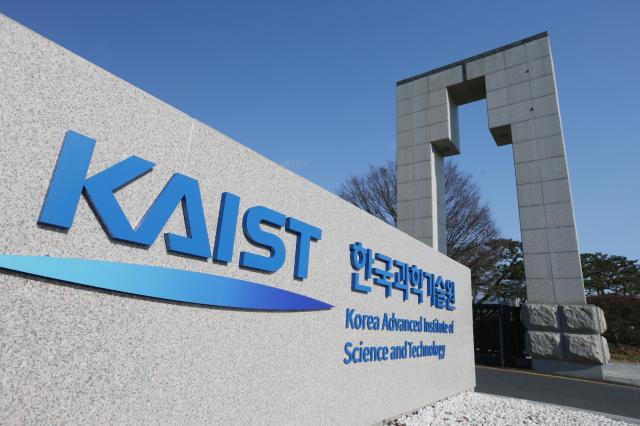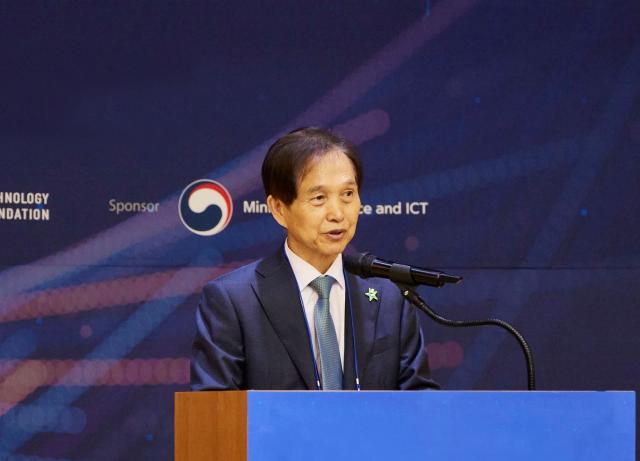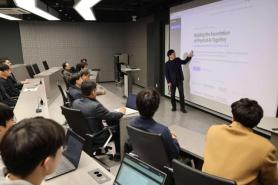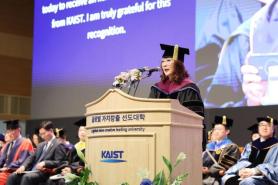
SEOUL, July 26 (AJP) - KAIST is stepping up its efforts to develop next-generation artificial intelligence technologies and train new talent as part of a broader national drive to position South Korea among the world’s top three AI powers.
The university said Thursday that it aims to become a global hub for innovation in science and technology, supporting the government’s G3 initiative while helping to address key industrial and social challenges through AI.
"KAIST will position itself as a global science and technology leader that creates tangible value for South Korea and for humanity," said President Lee Kwang-hyung. "We will focus our research and training to help fulfill the new government’s agenda of becoming a G3 AI power."
Lee also said that the university is placing particular emphasis on making AI accessible to everyone. "Our vision is to build a society where all people can freely use AI. We want to restore South Korea’s competitiveness in manufacturing by bringing physical AI, AI robots, and AI mobility technologies directly to industrial sites to drive productivity," he said.
KAIST leads the National AI Research Base Project, directed by Professor Kim Ki-eung, which focuses on building industrial competitiveness through AI and applying the technology to real-world problems. The program is part of a broader goal to create what the school calls an "AI basic society," where AI is integrated into everyday life across all sectors and demographics.
The university’s presence in global AI research continues to grow. Over the past five years, it has ranked fifth globally and first in Asia in the number of papers accepted to top machine learning conferences including ICML, NeurIPS, and ICLR. When expanding the scope to include leading conferences in natural language processing and computer vision, such as ACL, EMNLP, NAACL, CVPR, ICCV, and ECCV, KAIST ranks fifth in the world and fourth in Asia. At the ISSCC, one of the world’s most prestigious conferences in semiconductor circuits, KAIST has maintained the top global position in paper acceptances over a 19-year period from 2006 to 2024.
The school is pushing ahead with the development of foundational technologies such as Korean-language large language models, neuromorphic semiconductors, and low-power AI processors. It is also active in applied areas like autonomous driving, urban air mobility, precision medicine, and explainable AI.
In manufacturing, KAIST is using AI to drive changes on the factory floor. Professor Jang Young-jae’s team has developed digital twin systems and predictive AI models to boost productivity in high-tech industries like semiconductors and displays. Professor Kim Sung-min’s group has created ultra-low-power wireless tags that enable precise location tracking within a centimeter margin, paving the way for smarter factories. Technologies from Inisee, a startup founded by Professor Choi Jae-sik, are already being used in industrial settings to optimize operations and predict equipment failures. In March, the government designated Inisee’s explainable AI technology as part of South Korea’s national strategic tech portfolio.

KAIST is also generating results in robotics. A team led by Professor Hwangbo Jemin recently unveiled RAIBO 2, a quadruped robot designed for disaster response and rough-terrain exploration. Another team, led by Professor Kong Kyung-chul and working with startup Angel Robotics, has developed the WalkON Suit, an exoskeleton that helps paraplegic individuals and people with mobility impairments regain independence.
Beyond AI, KAIST continues to expand its footprint in a range of future-oriented fields. The university is conducting research in AI chips, quantum cryptography, nanosatellites, hydrogen fuel cells, next-generation batteries, and bio-inspired sensors. Among the more high-profile projects are its work on space exploration using microsatellites, asteroid missions, and energy harvesting technologies.
In the biotech sector, KAIST is collaborating with German firm Merck on synthetic biology and mRNA research. The university also played a role in the planned construction of a 430 billion won Merck Bio Center in Daejeon, which is expected to contribute to local employment and economic development.
KAIST continues to deepen international ties. It has forged strategic partnerships with MIT, Stanford, and New York University, the latter of which includes a joint campus in New York City to facilitate research and academic exchange. The university also maintains industry collaborations with companies like Google, Intel, and TSMC.
Its contributions to entrepreneurship have also been significant. To date, KAIST alumni have founded 1,914 startups, including companies such as Qnix Computer, Nexon, and Naver. Collectively, these firms have accumulated 94 trillion won in assets, 36 trillion won in revenue, and employ about 60,000 people. More than 90 percent of these startups originated from faculty or student research labs.
Roughly 80,000 KAIST alumni are now active in society. The school says it continues to bring in new talent to carry forward that momentum.
Copyright ⓒ Aju Press All rights reserved.




